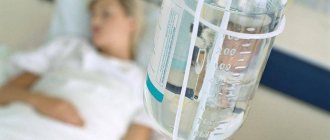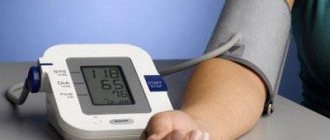The ritual of drinking alcoholic beverages, characteristic of all kinds of holidays, can suddenly be overshadowed by alcohol poisoning. It occurs within the first hours after drinking strong drinks and differs significantly from hangover syndrome in its destructive effect on body functions.
Knowing how to recover from alcohol poisoning will help you avoid catastrophic consequences.
How to restore the body after drinking alcohol: relieving a hangover
The consequences of a fun party with lots of alcohol are swelling of the face, depressed health, headache, increased excitability of the nervous system, causing a feeling of constant irritation. The listed unpleasant symptoms are associated with the process of decomposition of ethyl alcohol. To neutralize poisons, the body spends all its reserves of vitamins, minerals, and vital energy.
How to restore the body after drinking alcohol? There are the following proven recipes for dealing with hangover syndrome:
- Physical elimination of poisons . Effective ways to combat intoxication are an enema or gastric lavage. More humane methods include the use of enterosorbents and activated carbon.
- Drink plenty of fluids . The optimal solution for eliminating a hangover is fermented milk products (remove toxins from the body), mineral water or brine (restore salt balance).
- Water treatments . A bath or contrast shower helps to invigorate and combat dehydration.
- Glycine . The hangover condition is manifested by nervous tension, increased irritability, and aggressiveness. To overcome these unpleasant symptoms, you should take 1 tablet every hour, but no more than 5 per day.
- Cold compress . To get rid of headaches, you can use a cold compress. Just put a few ice cubes in a plastic bag and apply for 10-15 minutes. The blood vessels will narrow, the unpleasant sensations will subside.
- Essential oils . A bath with lavender or rosemary oil is an “ambulance” in relieving a hangover. A few drops are added to water at 35-40 degrees, the procedure lasts 15-20 minutes. Research shows that this product speeds up the removal of toxins by 25 times.
- Proper breakfast . It is important to force yourself to eat even if you have no appetite. Porridge, lean meat broth, and fermented milk products are suitable: they will help fill you up, but will not create additional stress on the gastrointestinal tract. It is recommended to drink tea, freshly squeezed juice or fruit drink.
Cleansing the body of toxins
In order for the condition to normalize, you need to get rid of all traces of alcoholic substances. But only 5% of toxins are eliminated from the body in the first day. The remaining 95% settles in the internal organs (liver, stomach, intestines).
How to cleanse the body? Proper drinking regimen, diet and medications will help with this. As already mentioned, to restore water-salt balance, you need to consume as much fluid as possible. A signal that salt levels have normalized is a decrease in headaches.
To make the body’s recovery after binge drinking as easy as possible, you need to eat easily digestible dietary foods. Alcohol has a negative effect on the gastric mucosa. Most alcoholics have diseases such as gastritis or peptic ulcers. Even a healthy person often has a stomach ache after drinking a large amount of alcohol. So, acceptable foods: oatmeal, mashed potatoes, low-fat chicken broth, baked goods, jelly. You need to eat in small portions and often. You can't go hungry.
To eliminate the consequences of binge drinking, it is necessary to cleanse the gastrointestinal tract of alcohol residues. For this purpose, sorbents can be used. These are drugs that remove toxins from the body naturally. The most common sorbent is activated carbon.
Since alcohol affects the nervous system, a person becomes irritable and aggressive. In this case, it would be advisable to use sedatives. But only after consulting a doctor.
Many mild sedatives are herbal infusions with alcohol. If a person wants to recover from binge drinking, taking any alcohol-containing solutions is strictly prohibited.
Traditional medicine can tell you how to restore the body after binge drinking. Wine has been consumed by people since ancient times; it is not surprising that today there are many truly effective methods of traditional medicine to cleanse the body after binge drinking. Traditional recipes will help not only remove remaining toxins from the body and replenish essential nutrients, but also put your face in order. After all, the skin suffers from chronic alcoholism as much as the internal organs.
It is important to take only proven remedies so as not to harm an already weakened body.
The liver suffers the most from alcohol consumption. In people with alcohol addiction, liver tissue is damaged and cirrhosis develops. This is a serious condition that must be treated under medical supervision.
How long does it take for the body to recover after binge drinking?
The speed of recovery of the body after prolonged drinking depends on many factors :
- patient's age;
- his general health;
- condition of the liver, pancreas and other organs;
- duration of the binge, etc.
Clinical studies show that men return to normal life faster than women.
How to restore the body after prolonged drinking? It is necessary to use medications and folk recipes to eliminate unpleasant symptoms. Getting rid of a hangover is not enough: it is important to normalize the functioning of the gastrointestinal tract, cardiovascular system, liver, kidneys and other organs.
Practice shows that stopping binge drinking at home is a difficult undertaking. To quickly improve the patient’s condition, you need to use the services of a narcologist . The optimal solution is to place the patient in a specialized rehabilitation center, where he will be under the supervision of doctors and away from “hot” temptations.
Practice shows that withdrawal symptoms disappear 3-6 days after a person stops drinking. Another 2-3 weeks are required to completely eliminate the signs of intoxication.
Psychosomatic disorders caused by long-term alcohol abuse persist for up to several months after complete abstinence.
Medications for recovery from binge drinking
To speed up the intoxication of the body, the patient is prescribed medications. These include:
- Activated carbon;
- smecta;
- enterosgel;
- polysorb, etc.
The second group of medications prescribed after binge drinking are sedatives. Axiolytics and tranquilizers help overcome cravings for alcohol and normalize sleep.
If the patient’s condition is assessed as severe (severe intoxication, inability to take fluids due to constant vomiting), IV treatment is used to restore the body. The patient is given intravenous glucose solution or isotonic solution.
Proper nutrition after binge drinking
How to restore the body after prolonged drinking? Doctors are unanimous in their opinion that it is important to build a proper diet. The following elements should be present in it :
- dairy and fermented milk products – neutralize toxins;
- watermelons, cucumbers, lingonberries are natural diuretics;
- fresh fruits and vegetables - saturate the body with vitamins;
- greens (parsley, dill, asparagus) – accelerates the elimination of alcohol breakdown products from the body;
- natural teas, freshly squeezed juices, fruit drinks - activate the gastrointestinal tract.
After alcohol abuse, it is recommended to give preference to light meals that will not create additional stress on the pancreas. Porridges, broths, hard-boiled eggs, boiled lean meat (chicken, turkey, rabbit), and white fish are useful.
Fried, fatty, pickled, salty, and foods containing a lot of spices are excluded from the patient’s daily diet. The listed dishes create additional stress on the stomach and intestines, already weakened by prolonged drinking.
Diet
The most important condition of the diet is to limit the stress on the body.
Food should be light and taken in small portions. 9 general recommendations for poisoning:
- Food should be at room temperature.
- Meals should not be less than 5 per day.
- Porridge with water is useful because it adsorbs toxins.
- And one more principle is the categorical exclusion of alcoholic beverages of any kind.
- All food should be stewed, boiled or baked. The best option is steaming.
- After poisoning, yeast baking is not recommended, as it causes fermentation in the intestines.
- The diet needs to be varied, the content of proteins and carbohydrates increased, but fats should be less than normal.
- A prerequisite is a water regime: at least 2.5-3 liters per day. The liquid removes toxins and facilitates liver function.
- The body also needs vitamins and microelements: baked and boiled vegetables and fruits are allowed without restrictions.
Important! The main sign of recovery is the cessation of vomiting and nausea.
How to restore the body after alcohol at home?
Reliable helpers in the fight against the consequences of binge drinking are folk methods, the effectiveness of which has been proven over several generations.
The following effective recipes exist:
- Cabbage or cucumber pickle . Helps restore the water-salt balance disturbed by heavy libations.
- Tomato cocktail . Eliminates dry mouth, cleanses the body of toxins. To prepare it, beat one raw egg into a glass of tomato juice, add salt and pepper.
- Herbal teas . They fight dehydration and activate intestinal function. Traditional medicine recommends tea made from mint, lemon balm, and chamomile. To speed up the effect, additional ingredients are added: rosemary, dandelion, willow bark.
- Lemon juice . Tones, replenishes vitamin C reserves in the body, reduces the time of recovery from binge drinking. It is recommended to use it in its pure form, 2-3 tbsp. spoons after each meal or add to green tea in a similar amount.
Traditional medicine gives a lot of advice on how to restore the body after alcohol. To return to normal well-being faster, you should remember that the fight against intoxication is an important job that requires an integrated approach. It is important to combine medication with proper nutrition and lifestyle adjustments.
How to recover for a child and a pregnant woman
These categories suffer more severe poisoning than ordinary people. It is not always possible to use medications to treat intoxication.
Children often feel weak at this time and do not want to eat at all. First of all, you need to restore the child's water balance. You cannot force feed a child; food should be given only when he asks for it.
Watch a video about the effects of alcohol on human health
Alcohol is poison. Abuse of alcoholic beverages is fraught with the most tragic consequences - these simple truths are known to everyone. However, sometimes during holiday feasts even reasonable people drink too much and suffer from a hangover the next morning. Alcohol poisoning disrupts the normal functioning of the body, which is manifested by a number of ailments of varying severity: nausea, headache, tachycardia, general weakness, loss of appetite. MedAboutMe knows how to ease the suffering of a hangover.
Recovery stages
If you don’t drink alcohol for a week, you can observe improved sleep, a boost of energy, restoration of the condition of the skin, and normalization of the functioning of the digestive organs. If an alcoholic manages to be sober for 2 weeks, he will feel clarity of thought, blood pressure will return to normal, heart rate will stabilize, shortness of breath will go away, and headaches will appear less often.
People who drink often do not realize that the brain is much more damaged by alcohol than the liver. And how quickly he can recover directly depends on the area of damage, on the amount of drinking, as well as on the duration of the effect of alcohol on the brain. Alcohol has a destructive effect on the brain, since in the process of alcohol abuse, cerebrospinal fluid is lost and, against this background, the brain matter is compressed.
In order for the brain to begin to work on self-healing, you will need to avoid touching alcohol for at least 2 weeks. If you don’t fight the bad habit in any way, then the brain cells will gradually deteriorate, which will certainly negatively affect its activity. And even over time, dementia (dementia) can develop.
Nervous system
Ethanol derivatives entering the body in large quantities actively affect the nervous system. Alcoholics often complain of forgetfulness and absent-mindedness. A sharp and acute reaction to minor irritants, sudden mood swings become the hallmark of such people.
After detoxification of the body, they switch to long-term courses of taking medications that improve cerebral circulation and normalize the functioning of the vascular system. It may take the longest to restore normal functioning of the nervous system, so former alcoholics and their relatives need to be patient.
Dehydration and drinking regime
Ethyl alcohol, or ethanol, is the basis of all alcoholic drinks, a toxic substance that the body tries to neutralize and eliminate. Alcohol transformation occurs mainly in the liver. As a result of numerous complex processes, an even more toxic compound, acetaldehyde, is formed as an intermediate substance, which is the culprit of hangover syndrome. It may take up to 24 hours for the body to break down and neutralize it, during which the consequences of alcohol poisoning will make themselves felt.
Dehydration is one of the most striking manifestations of a hangover syndrome. Drinking four glasses of alcohol causes your body to lose one liter of water. The kidneys, which actively remove toxins, remove them along with water, which causes dehydration, which causes headaches during a hangover. A certain drinking regime can alleviate the condition.
For this purpose it is recommended:
- Drink clean, still water while drinking alcohol and in the following hours.
- To replenish the loss of mineral salts, use vegetable juices, salted broths, brine containing magnesium, potassium and sodium.
- Avoid drinks containing caffeine (coffee, tea, soft drinks), which increases dehydration. If you drink coffee, do it a little and wash it down with water.
- Drink rosehip decoction, dried fruit compote and herbal teas.
Alcohol poisoning leads to acidosis, that is, a violation of the acid-base balance in the direction of increasing acidity. This, by the way, explains nausea and vomiting during a hangover. Therefore, experts do not recommend, for example, quenching your thirst with orange juice at this time. Alkaline water is preferable (Borjomi, Essentuki, etc.).
Alcohol dehydration
It’s quite possible to cope with binge drinking on your own if you know what you need to do and be patient. The first thing you need to recover at home is to overcome dehydration. You need to drink a large amount of liquid, 0.5-1 liters per hour. So during the first days. It is better to drink not pure water, but saline solutions (brine) and mineral water without gas.
When drinking alcohol, the body loses a significant amount of sodium and potassium salts. As a result, the functioning of the muscular and nervous systems is disrupted. In severe cases, seizures occur.
What to do after binge drinking? Drinking mineral water and brines will help restore salt levels in the body. Drinks such as tomato juice or mint infusion are also suitable. And drinking sweet drinks will help remove toxins as quickly as possible and alleviate the patient’s condition.
Important! Cramps after binge drinking are a sign of a serious disruption of the functioning of the main body systems. In such a situation, self-medication is unacceptable; urgent medical intervention is required. In the hospital, doctors will be able to quickly stop binge drinking and restore the functioning of the muscular and nervous systems. Even if the patient experiences muscle cramps for the first time, one should not hesitate. The more advanced the seizures, the more difficult it is to cure them.
Eating during a hangover
Despite the lack of appetite, it is not recommended to refuse food during a hangover. Proper nutrition during alcohol intoxication is one of the ways to relieve unpleasant symptoms. Light soups with chicken broth, oatmeal, boiled potatoes, eggs, yoghurts, and vegetables are useful during this period. Chicken meat and eggs contain amino acids that help the body cope with toxins. Yogurts will help restore intestinal microflora. Oatmeal, potatoes and vegetables will serve as a sorbent and replenish the loss of vitamins and minerals.
To relieve the liver and pancreas, it is better to avoid foods that are difficult to digest and exclude fatty and fried foods. Bananas and dates are suitable fruits to relieve hangover symptoms, but not sour pineapples or citrus fruits. Honey accelerates the elimination of toxins, so it is recommended to include it in the diet of those suffering from hangover syndrome.
What foods are suitable for restoring the body?
In addition to water and green tea, you can drink other drinks. Berry juice, rich in vitamins and helping to improve the functioning of the digestive system, is perfect. A good choice would be cucumber pickle, which is familiar to many alcoholics firsthand. The brine can help the body regulate the amount of electrolytes in the body.
Herbal teas will also help to have a positive effect on the restoration of the nervous system, and with the addition of mint, such a drink can also eliminate painful sensations. You shouldn’t avoid dairy products either; milk and low-fat kefir are the best options. You can also drink drinks with the addition of ginger and lemon juice, which are excellent for nausea and vomiting.
When you have a hangover, you usually don’t want to eat; your body resists the intake of food. Therefore, honey, which has a beneficial effect on the cardiovascular and nervous systems, will be a good alternative to breakfast. Bananas and kiwis, which contain large amounts of potassium, are excellent snack options. Regular oatmeal is suitable as a complete breakfast - it contains a lot of calcium, iron and magnesium.
Sleep, medications and fresh air
Alcohol is known to help you fall asleep quickly. However, sleep after large or regular doses of alcohol is not healthy. Alcohol poisoning disrupts sleep phases, making it restless and shallow. Therefore, even after spending 8-9 hours in bed, a person suffering from a hangover usually wakes up broken and exhausted. But for a speedy recovery from alcohol intoxication, sleep is necessary. Therefore, in a hangover situation, experts advise sleeping as much as the body requires, taking breaks to eat and quench thirst.
At the same time, the painful symptoms of a hangover can interfere with sleep. In this case, medications that relieve these symptoms, as well as herbal teas and a warm shower, will help. Teas with mint, chamomile, and valerian calm the nervous system and fight nausea. Activated carbon and other sorbents reduce discomfort in the gastrointestinal tract. Aspirin thins the blood, improves the elimination of toxins and relieves headaches. However, we must remember that it is dangerous for the stomach if there is an ulcer or gastritis. It is not recommended to use paracetamol after alcohol poisoning, since it is toxic to the liver, which already works overtime during a hangover.
Fresh air improves sleep and promotes faster elimination of toxins, so it is better to sleep with an open vent or window. For the same reason, walking and light physical activity are useful, as they speed up metabolic processes. However, serious effort or exercise during this time can be harmful.
The ritual of drinking alcoholic beverages, characteristic of all kinds of holidays, can suddenly be overshadowed by alcohol poisoning. It occurs within the first hours after drinking strong drinks and differs significantly from hangover syndrome in its destructive effect on body functions.
Knowing how to recover from alcohol poisoning will help you avoid catastrophic consequences.
How is poisoning treated?
Treating poisoning is now quite easy, since every correctly prescribed pharmaceutical drug will allow you to overcome the disease in a short time, especially if it occurs in grade 1 or 2. Modern medicine uses several effective methods to treat poisoning:
- preventing the absorption of ethanol into the bloodstream;
- using droppers to cleanse the blood of alcohol decay;
- methods of quick and rapid sobering up.
To quickly prevent the absorption of ethanol through the stomach into the blood, the doctor prescribes the patient to take activated charcoal, after which he will need to rinse the organ.
For the best effect, the patient should be given 3-4 glasses of water. This removal of toxins and harmful substances will allow you to quickly get rid of the breakdown of ethanol, as a result of which they will not be absorbed into the blood, causing a deterioration in the condition.
After this, the alcoholic will be induced to vomit and caffeine-based drugs will be injected intramuscularly.
Poisoning after alcohol: what to do?
The symptoms of alcohol intoxication are fundamentally different from the hangover syndrome. Negative feelings that occur the next morning after a party can be avoided by adhering to simple rules:
- Before drinking alcohol, drink 6-8 tablets of activated carbon or one capsule of Sorbex;
- Eating fatty foods will reduce the absorption of alcohol;
- Do not drink alcohol on an empty stomach;
- Do not mix different alcohol-containing drinks, for example, do not drink vodka with beer.
Alcohol poisoning, unlike hangover syndrome, also occurs from one glass or shot glass. The reason may be not only a large amount of alcohol consumed, but also low-quality alcohol, weak body tone, and the presence of chronic diseases. Treatment after alcohol intoxication is significantly different and is aimed at restoring the proper functioning of organs.
The body's reaction to alcohol poisoning has pronounced signs:
- Incoherent or unintelligible speech, “feverish” glare in the eyes, unfocused gaze, constriction of the pupils;
- Increased emotionality, complete or partial lack of control over movements;
- Continuous vomiting or nausea;
- Pale skin;
- Slowing or accelerating heart rate, slowing breathing, in case of severe intoxication - loss of consciousness;
- Decreased blood pressure and body temperature;
- In severe cases - convulsive syndrome.
The presence of at least one of the above symptoms indicates alcohol poisoning. The recovery process may include home remedies, but in particularly severe cases, medical intervention is required.
The body of an adult is capable of eliminating 5-10 mg of alcohol per hour without any special consequences. In terms of units of measurement of strong drinks: a glass of vodka (up to 30 g) or a glass of wine (60 g), or a glass of beer (100 g). Exceeding the volume is allowed, but not many times.
Recovery after drinking in several stages
How to quickly get in shape after drinking alcohol? There are several tips on this issue.
- First, you must remember to drink plenty of water. It is better to give up sugary drinks, giving preference to mineral waters and distilled water. Soda and industrial juices retain water in the body, preventing you from quickly getting rid of toxic substances. And mineral water allows you to remove toxins faster and also has a beneficial effect on metabolic processes.
- Secondly, drinking green tea. This drink has a number of beneficial properties that the body needs after alcohol intoxication. Tea helps the digestive system and also has a tonic effect, allowing you to perk up before starting the working day.
- Thirdly, medications. To recover quickly, you will have to resort to the help of special medications. You can find them at any pharmacy or get them after consulting a doctor. Drug treatment can improve the functioning of the cardiovascular system, restore the nervous system and the functioning of the gastrointestinal tract.
Why does intoxication occur?
Alcohol intoxication is similar in its symptoms to poisoning of any food. In this case, the main cause of poisoning is ethyl alcohol intoxication. Absorbed into the blood, it enters the brain, where it disrupts the functioning of the central nervous system. Uncoordination of movements, dizziness, nausea and other destructive symptoms occur.
A blood alcohol concentration above 3% is lethal. In terms of glasses, this is 300 g of pure alcohol.
After alcohol poisoning, you can eat anything that will spare the digestive system, allow damaged cells to recover, and reanimate the functions of the affected organs.
The effect of ethanol derivatives on the body
- Brain. The work of neurotransmitters that inhibit brain functions increases. Neurons are damaged, high concentrations cause neuronal death;
- The cardiovascular system. Large amounts of ethanol lead to the death of red blood cells and can lead to arrhythmia and cardiac arrest;
- Liver. Cells die under the influence of alcohol breakdown derivatives, in some cases bile stagnation and an inflammatory reaction of the liver occur;
- Gastrointestinal tract. The mucous membrane of the stomach and small intestine is damaged, increasing the likelihood of developing gastritis, ulcers, and pancreatitis. Chronic gastrointestinal diseases can enter the acute phase;
The destructive effect of alcohol poisoning will require special nutrition depending on the degree of organ damage.
What does binge drinking lead to?
Once alcohol is in the body, it is very quickly absorbed into the blood and its toxins begin to poison the body. If a person ignores the symptoms of intoxication and continues to drink, he will face the following consequences of binge drinking:
- Headaches - alcohol toxins, when they seep into the blood, block access to the brain of oxygen, nutrients, glucose, and have a destructive effect on blood vessels and tissues. This leads to a person feeling unwell: with prolonged binge drinking, an alcoholic can develop severe depression caused by alcoholic psychosis.
- Vomiting, sometimes with blood, hiccups, abdominal pain - this is the effect of ethanol on the functioning of the digestive system. First of all, it has an extremely negative effect on the liver, which processes alcohol toxins. It manifests itself as pain on the right side at the bottom of the rib. Pancreatitis, ulcers, hemorrhoids, and intestinal bleeding may also develop.
- Due to fluid retention and its uneven distribution, the face, eyes, nose, legs, and arms swell.
- Problems with the cardiovascular system (pain in the left side of the sternum, tachycardia, acute heart failure).
- In men and women, attraction to the opposite sex decreases or disappears.
A fatal disease for women and men is cirrhosis, when liver cells are replaced by connective tissue and cease to cope with their responsibilities. This leads to poisoning of the body, the stomach swells due to the accumulation of large amounts of water. There is no way to get rid of this disease. The only thing that can be done is to delay death by several months with the help of therapy.
The consequences of binge drinking can lead to allergies. As a result, a person will experience unbearable itching, when the whole body itches, the eyes and stomach hurt. The face, neck, and hands become covered with red spots. The only thing you can do to get rid of allergy symptoms is to give up alcohol.
In severe situations, alcoholic epilepsy may develop. It is expressed in convulsions of a continuous or intermittent nature, acute and burning muscle pain, and a person’s inability to understand what is happening around him.
In a mild form of alcoholic epilepsy, although the cramp does not reduce, sharp pain is observed in the contracted muscles. Most often - in the area of the hands, feet, and calf muscles. If the attack is severe, the patient may lose consciousness, the muscles may contract a strong spasm, the jaw may clench, and the eyes may roll back. If you do not take action in time and do not seek help from a narcologist, who will stop the binge and provide the necessary assistance to get rid of the terrible symptoms, the attack will recur.
First aid for alcohol poisoning
After the first symptoms of acute alcohol poisoning appear, it is necessary to immediately provide assistance at home. Depending on the severity of the condition, several procedures or a combination of them are performed until you feel better.
Stopping the gag reflex in case of nausea and vomiting is not recommended, since the stomach will not be cleansed. The stomach is washed to clean water, removing all traces of food and alcohol. For this, a weak (2-3%) solution of manganese in a liter of water is suitable, which the victim drinks 1-2 glasses until vomiting occurs. The potassium permanganate solution can be replaced with a warm saline solution (a spoonful of salt per liter of water):
- If drinking strong drinks happened more than an hour and a half ago, absorption continues in the small intestine. It is necessary to do a cleansing enema.
- Take a contrast shower, this will normalize blood circulation.
- Take diuretics.
- After vomiting due to alcohol poisoning and subsequent rinsing, you need to drink an enterosorbent, for example, Enterosgel, Sorbex, Smecta or another similar drug.
- To restore intestinal microflora, take Linex or Enterol.
- Ensure drinking regime - the victim must replenish the water balance in the body. After gastric lavage, take a few sips of liquid as often as possible. Use only non-carbonated mineral water or rehydron solution.
- Take a dose of glycine or Corvalol to ensure oxygen access to the brain.
- After all actions, additional vitamins are taken, especially vitamin C. During the rehabilitation period after poisoning, you can eat fruits and vegetables containing the maximum amount of this vitamin, which promotes a speedy recovery.
- Take medications that restore liver function, for example, carsil, silymarin or hofitol.
If the patient loses consciousness, has difficulty breathing, vomiting does not stop after washing, the vomit is black or contains blood, you should immediately call an ambulance. Before the doctors arrive you should:
- If possible, revive the victim using ammonia. A small amount is poured onto a cotton swab and given to the patient to smell.
- Lay the victim on his side, unfasten and untie his tight clothing, and allow air flow.
- Provide supervision to ensure that the person does not overheat or become hypothermic.
- Carry out resuscitation if breathing stops or there is no pulse.
Recovery activities
The sequence of actions when removing a person from binge drinking in general is very similar to the situation with alcohol poisoning. But it should be taken into account that when binge drinking, metabolic processes in the body begin to work in a new mode, adapting to the constant presence of alcohol .
Therefore, if you abruptly interrupt the binge and begin recovery, alcoholic psychosis can be provoked. This can only be done in a hospital setting. If a person is struggling with binge drinking on his own, then 3 hours before the start of detoxification it would be wise to take a small amount of alcohol for the last time, and only then begin treatment. For positive dynamics, the patient should also quit smoking. After all, ethanol and nicotine are antagonists that cause severe vascular dysfunction.
After this, you can begin medicinal recovery, which should take place in courses. The following remedies are effective:
- vitamin and mineral complexes;
- nootropic, antidepressants, sedatives;
- supporting the heart muscle;
- hepatoprotectors.
In addition, it is necessary to adjust the diet and not violate a special diet that is gentle on the liver, gall, pancreas and kidneys.
As for alcoholic drinks, you shouldn’t even look in their direction! And also we must not forget about reasonable physical activity . A good option is walking your pet, walking in the park or through the forest, or doing light work in your garden. Such activities can improve both physical and emotional well-being.
And yet, a set of measures to restore the body of a former alcoholic should be drawn up taking into account an individual approach. The variety of medications used, the duration and intensity of the rehabilitation course may differ significantly in each specific case.
What to eat after alcohol poisoning?
After alcohol poisoning and vomiting, it is necessary to eat something that promotes the speedy rehabilitation of internal organs.
Renewal of body functions ranges from several hours to several days. The duration varies depending on the person’s age, the presence of chronic diseases, the amount of alcohol consumed and the characteristics of the body. Different organs experience different degrees of damage, which is also purely individual. Exacerbation of chronic pain requires contacting a specialist who will create an individual diet.
Liver
Liver cells are most capable of regeneration, but its damage leads to complex diseases. You can eat gentle food, which shortens the rehabilitation period.
- eat fatty, fried, smoked foods;
- There are products that contain preservatives, dyes, and artificial flavor enhancers.
- eat foods containing fiber: cabbage leaves, wheat flour, bran, cabbage, broccoli and others;
- There are foods that contain vitamins and minerals: apples, fresh herbs, whole grain porridge, durum wheat pasta, bran bread, low-fat fish.
Pancreas
This organ can take a long time to recover and is very capricious and demanding. He is the most sensitive to diet violations. Preference is given to natural steamed products. To drink a lot of water.
- fatty, spicy, fried, smoked foods;
- boiled and fried egg yolks;
- chocolate, candies, lollipops and other sweets;
- fresh wheat bread;
- fresh fruits, especially citrus fruits;
- coffee, strong black tea.
- eat steamed food: lean fish, white meat;
- frequent “snacking”: eat everything you can in small portions every 2-3 hours;
- drink non-acidic dried fruit compotes, baked fruits;
- Half an hour before meals, drink half a glass of warm water.
Kidneys
Important organs of the excretory system, which is responsible for the formation of urine. Kidney failure leads to serious consequences for the entire body. The organ lends itself well to rehabilitation after alcohol poisoning if all doctor’s recommendations are followed.
- eat spicy, fatty, salty foods;
- There are foods containing calcium: milk, lactic acid products, steep broths, brains, liver.
- eat less food at one time, which will reduce the load on the kidney;
- increase the consumption of water, mainly specialized mineral water without gas;
- moderate physical activity.
The effects of alcohol are not always so destructive. Doctors recommend drinking good varieties of red wine in moderation, preferably with dinner. A glass of wine 2-3 times a week has a beneficial effect: it tones the cardiovascular system, improves digestion, and stimulates the production of hormones. Alcohol abuse is harmful to your health.
How long does it take for the body to return to normal?
How long does it take for the body to recover after drinking? One of the most popular questions in the topic of alcohol recovery. In order to feel better physically, be able to work, and get rid of nausea and dizziness, at least 6 hours must pass from the moment of drinking alcohol.
It is difficult to name the exact time - it directly depends on the amount of drink and the characteristics of the body reacting to alcoholic drinks. For some, 7 hours are enough to feel quite good, but for others, it will take a whole day for recovery processes and only by the next day will they be in shape.
During this time, most functions are restored and toxins are eliminated. At the same time, a person can speed up the removal of toxins from the body with the help of special products, thereby reducing the amount of time for recovery.










